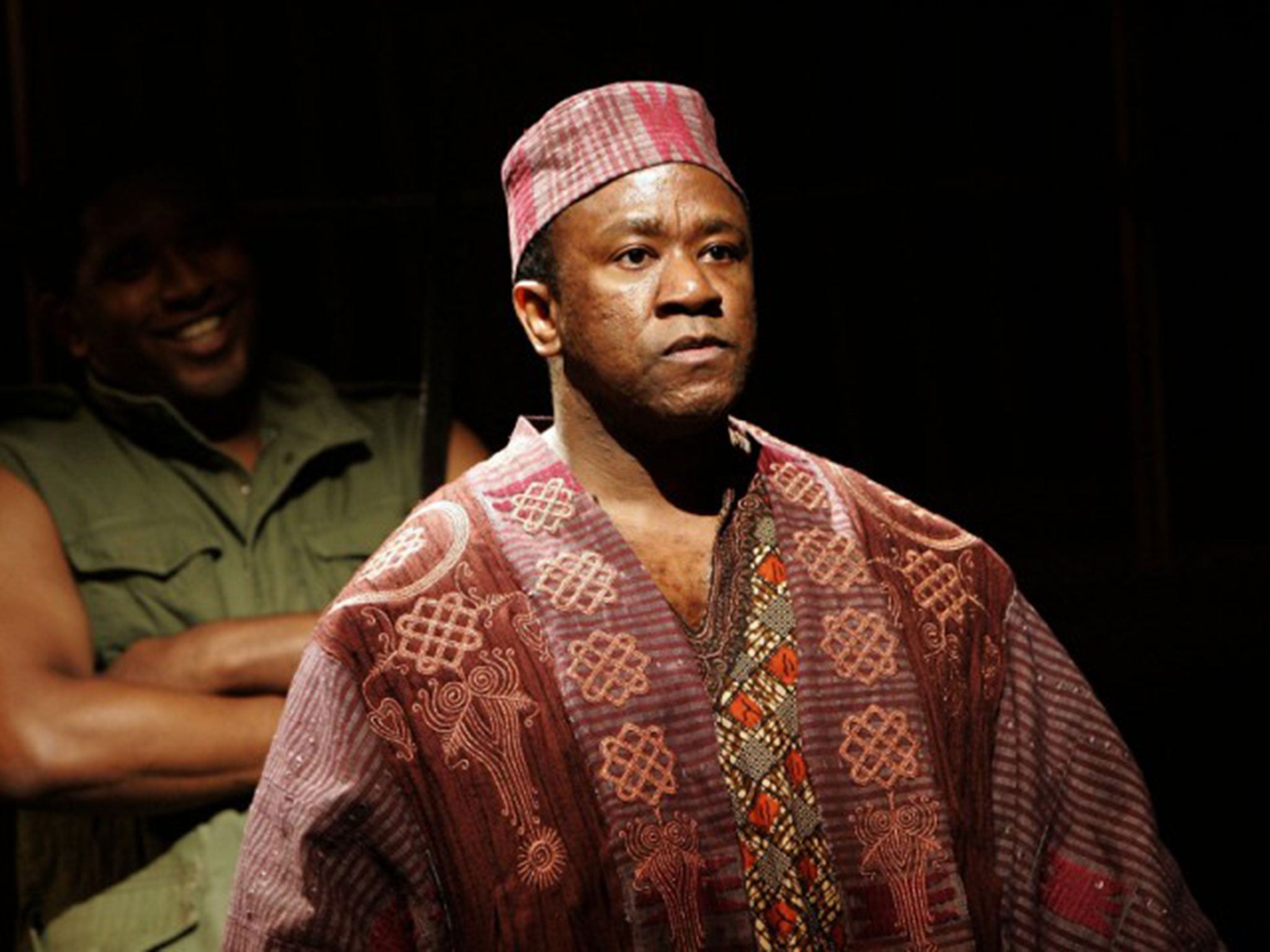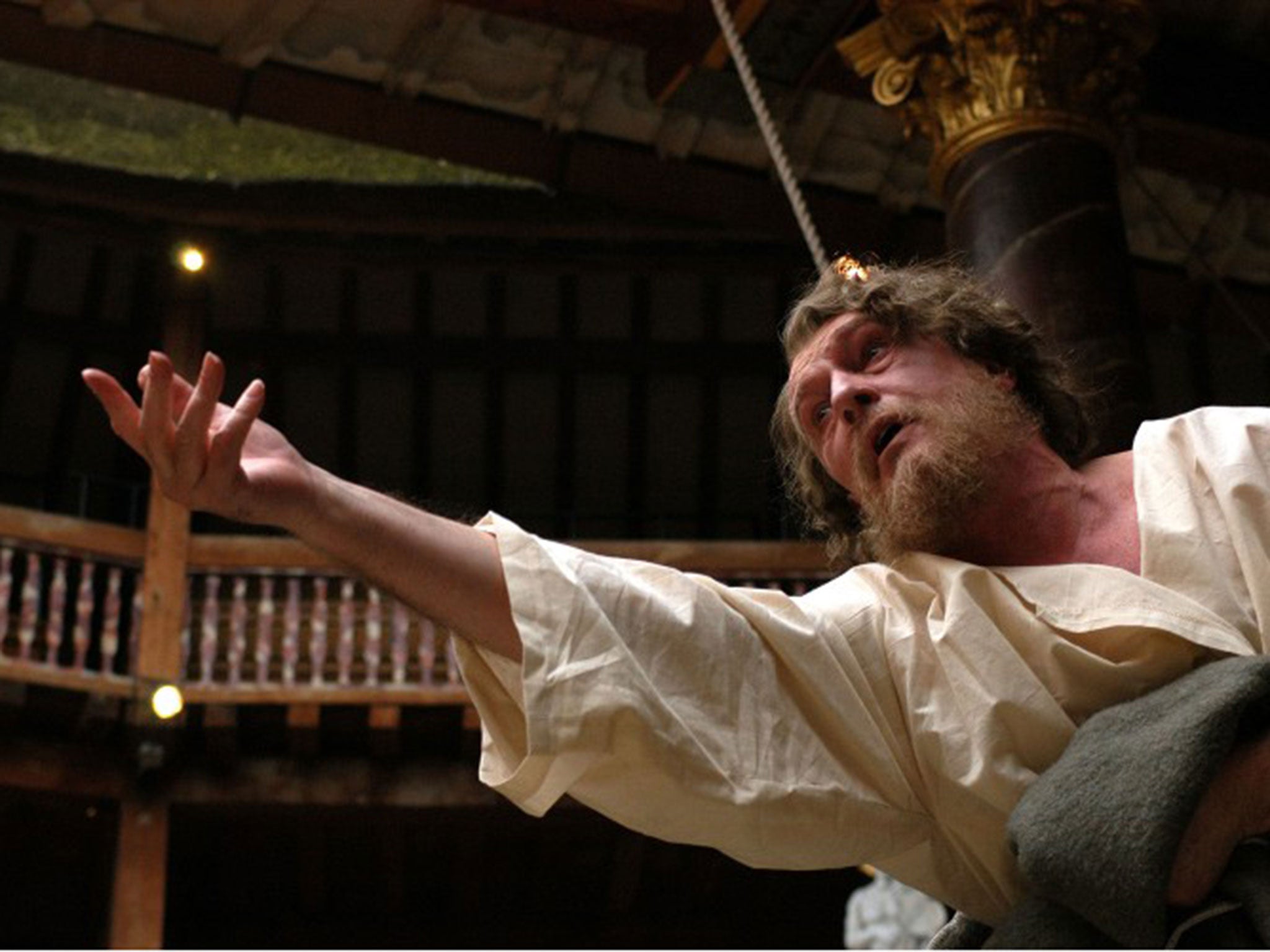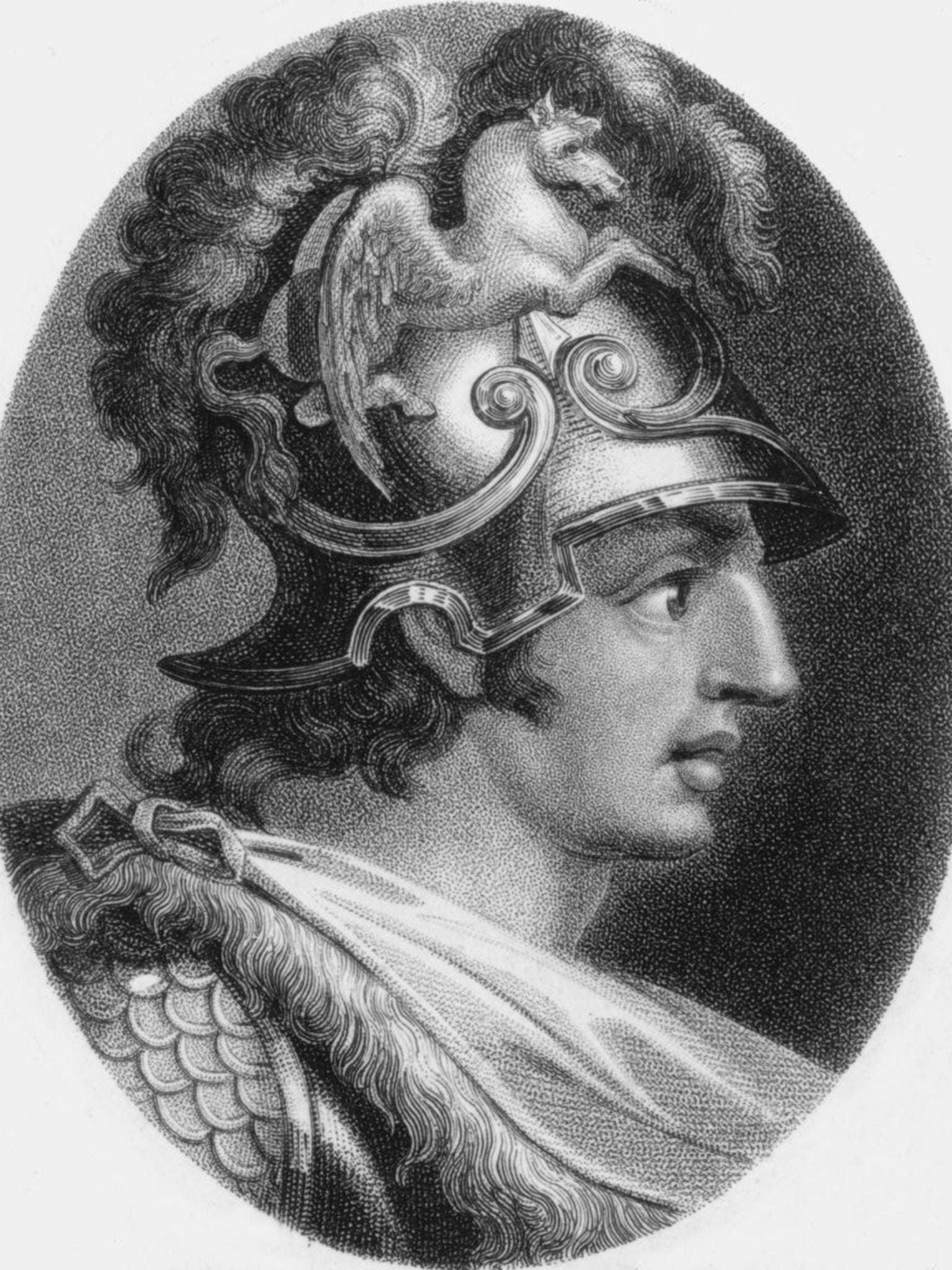Shakespeare 400th anniversary: Discovering a timeless journey for the age of the refugee
Continuing our series marking the 400th anniversary of Shakespeare’s death, Paul Taylor explains why even one of his less celebrated plays remains a source of wonder and inspiration

“This world to me is as a lasting storm/Whirring me from my friends,” declares Marina, the young daughter of the protagonist in Pericles. It’s not hard to fathom why this once seldom-revived play – with its sea-voyages in flight from mortal danger, shipwrecks, sundered families and miraculous reunions – has struck a chord in our era of perilous asylum-seeking.
The audience themselves were cast as refugees, forced to fill in application forms in a vast, bewildering processing centre, in the promenade revival by Cardboard Citizens company at Southwark in London. The action of the play was interspersed with verbatim testimony from real-life migrants. Yukio Ninagawa’s sumptuous Japanese version had, as its framing device, a ragged swarm of war victims.
The first of the Late Romances, Pericles, Prince of Tyre (1608) is a textually contentious, collaborative work, so it’s a goose-bump-inducing thrill when Shakespeare’s voice (occasionally heard beforehand) takes over from that of George Wilkins at the stormy start of the third act: “The God of this great vast, rebuke these surges.”
The play, with its medieval narrator and adventures based on the legendary wanderings of Apollonius of Tyre, has been castigated for being too loosely episodic – one damn misfortune after another. But despite the marked unevenness of accomplishment between the first and second halves, good productions manage to flesh out – through doubling and other touches – a potent overarching design.
In the opening episode, Pericles is a suitor to the daughter of the King of Antioch but he has to flee when he solves a deadly riddle that reveals how and she and her father are in an incestuous relationship.

In every subsequent port-of-call, there are strange, distorted echoes or inversions of this initial brush with evil, and the threat of incest hovers in an obscure, dream-like way over the proceedings until decisively transcended in the sublime recognition scene between two people who meet as strangers – the near-catatonically depressed Pericles and Marina, the daughter he had believed dead. His rapturous cry of “O come hither/Thou that beget’st him that did thee beget” recalls the riddle of Antiochus’s daughter – “He’s father, son, and husband mild/I, mother, wife and yet his child” – and purges it of all perversion.
This scene, with its strong intimations of spiritual rebirth, inspired TS Eliot’s beautiful 1930 poem “Marina”: “What seas what shores what granite islands toward my timbers/And woodthrush calling through the fog/My daughter.” It was reading this as a teenager that prompted me to look at the play: its story of death and resurrection, loss and reconciliation has haunted me ever since.
But I also relish the comic clash between romance convention and worldly realism, such as in scenes set in the Mytilene brothel. The crusading chastity of the kidnapped Marina proves to be disastrous for business at a time when morale among the disease-ridden bunch is already low: “the poor Transylvanian is dead that lay with the little baggage.”
Neil Bartlett set his 2003 production in the corridors of a modern hospital with swing-doors through which consultants bustled and sea winds burst. The concept sounds counter-intuitive, but it opened up the possibility of seeing the Mediterranean wanderings of this pyjama-clad Pericles as simultaneously an inner journey – a quest in search of spiritual – and physical recovery, with medical teams on hand for clinical decisions about resuscitation. It was very moving and also exceptionally alert to all the distorted echoes that accumulate on this odyssey.
It’s a beautiful and characteristic touch that these recurrences are joyously transfigured when Pericles is reunited with the wife he thought had died in childbirth. “O come, be buried a second time within these arms.”
Shakespeare at a glance: Pericles
Plot
King Antiochus offers the hand of his daughter to anyone who can solve a riddle. The answer reveals that he is incestuously involved with her; Pericles, who solves the riddle, flees. He embarks on a tour of the Greek islands, saves a starving city, marries Princess Thaisa, has a daughter and loses both. He wanders aimlessly at sea until, through a series of fortunate events, he finds them both, and they all live happily ever after.
Themes
Functional and dysfunctional families; chance and fate; conflicting religious faiths.
Background
The play was probably written around 1607. The Bard may have written no more than 827 lines of the play, say scholars; the rest may have been completed by a collaborator, possibly the pamphleteer George Wilkins. Performed less often than many Shakespearean works, it has enjoyed some notable revivals such as Terry Hands’s 1969 production, whose practically bare set had a hanging replica of Leonardo’s Vitruvian Man as a backdrop.

Key characters
Pericles, on the run from the King of Antioch.
Cleon, Governor of Tarsus: takes care of Pericles’ daughter after the death of Thaisa.
King Antiochus: incestuous king whose riddle causes Pericles’s great journey to begin.
Top lines
* “I am no viper, yet I feed on mother’s flesh which did me breed. I sought a husband, in which labour I found that kindness in a father.” King Antiochus’s riddle Act 1 Scene 1
* “Few love to hear the sins they love to act.” Pericles’s subtle dig at the King Act 1 Scene 1
* “Who makes the fairest show means the most deceit.” Cleon on suspicion Act 1 Scene 4
* “Opinion’s but a fool, that makes us scan the outward habit by the inward man.” King Simonedes of Pentapolis warns against leaping to conclusions Act 2 Scene 2
* “I see that Time’s the king of men, for he’s their parent, and he is their grave, and gives them what he will, not what they crave.” Pericles reflects on the human condition Act 2 Scene 3
* “I never kill’d a mouse, nor hurt a fly” Marina defines her innocence Act 4, Scene 1
* “O, come hither, thou that beget’st him that did thee beget; thou that wast born at sea, buried at Tharsus, and found at sea again.” Pericles is overjoyed when he finds his daughter Act 5 Scene 1
Echoes
TS Eliot’s 1930 poem “Marina” was inspired by it. The plot of Jacques Rivette’s 1960 film, Paris Nous Appartient, revolves around a production of Pericles.
Luke Barber
Join our commenting forum
Join thought-provoking conversations, follow other Independent readers and see their replies
Comments
Bookmark popover
Removed from bookmarks